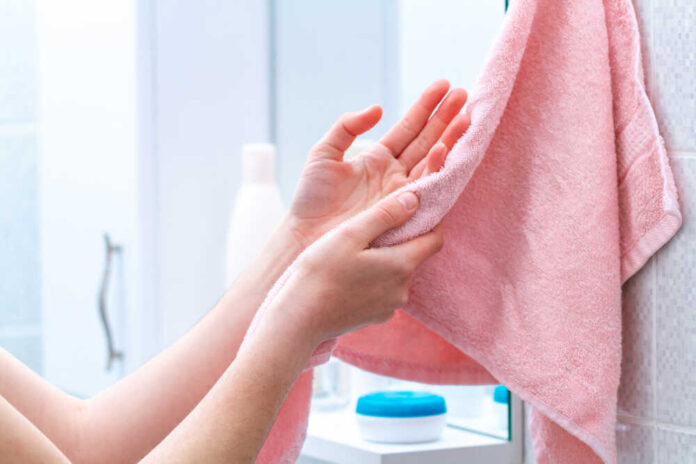
Towels play an indispensable role in our daily routines, yet their upkeep often goes overlooked.
We rely on them to dry off after a shower, to wipe our hands clean in the kitchen, and even to mop up unexpected spills. And when we’re done with them, we toss them back onto a rack or hook without a second thought, without realizing the potential health implications of this hasty act.
As we go about our day, these damp, folded cloths may become the perfect breeding grounds for harmful bacteria and other microorganisms that can impact our health.
Why Towels Are a Hotspot for Germs
Towels serve a crucial function in our homes, soaking up water from our skin and surfaces around the house. But the very nature of their usage makes them ideal environments for microorganisms to thrive.
They’re often damp and warm, conditions that bacteria and fungi find particularly inviting. And the layers of human skin cells that we inevitably leave behind provide an ample food source for these microorganisms.
The bathroom, where towels are most commonly used, is also typically humid—a characteristic that further encourages microbial growth. Add to this the fact that towels often sit in the bathroom for extended periods without being washed, and you have a recipe for a potential germ party.
The Health Implications
While not all bacteria and fungi are harmful, some can lead to infections, particularly in individuals with compromised immune systems. Some of the microbes that have been found on bathroom towels include E.coli and other fecal bacteria, which can cause gastrointestinal distress if they make their way into your mouth.
Other potential pathogens include Staphylococcus aureus, which can lead to skin infections, and the fungus Candida, responsible for conditions like athlete’s foot and yeast infections. If you share towels with others, there’s an increased risk of transmitting these infections.
How Often Should You Wash Towels?
According to hygiene experts, bath towels should ideally be washed after three uses, or at least once a week if they’re dried thoroughly between uses.
Hand towels, given their more frequent use and contact with different users, should be washed every one to two days.
Kitchen towels, which can come into contact with a variety of foodborne pathogens, should be washed daily or after every use.
Drying: An Equally Important Step
Remember, bacteria love moisture. Towels need to be dried thoroughly after washing.
While air-drying is fine, a tumble dryer will do a better job of eliminating any surviving microorganisms, as the heat can kill many types of bacteria and fungi.
Regardless of your drying method, always ensure your towels are completely dry before folding and storing them to prevent the growth of mold and mildew.
How to Wash Your Towels
To ensure your towels are properly cleaned, they should be washed in warm or hot water with a good-quality detergent. Adding a cup of white vinegar to the wash can help remove any lingering musty odors.
Towels should be dried thoroughly after washing. While air-drying is fine, a tumble dryer will do a better job of eliminating any surviving microorganisms, as the heat can kill many types of bacteria and fungi.






















